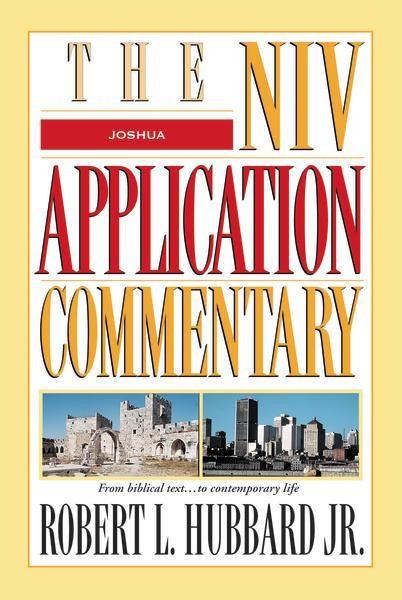Joshua (NIV Application Commentary)
Hubbard, Robert L. Jr.
Reading Joshua can be, frankly, a jarring experience. Serious, troubling questions about God’s attitude toward his created peoples arise, questions with no easy answer. But the book of Joshua presents itself, warts (and wars!) and all, and asks readers to let it tell its story from its point of view and out of its ancient context. It asks them to give it the benefit of the doubt and permit it to speak to them. This commentary aims to give its voice a clear hearing — to translate its ancient cultural form in such a way that it freely speaks about the life of faith today.
Basically, the book of Joshua tells how biblical Israel navigated a major historical transition early in its national life. The book shows that guiding these changes is Israel’s God, Yahweh, through his chosen servant, Joshua. The introductory sections to follow set the scene for entering the book of Joshua and the ancient world about which it reports.
About the NIVAC Series
The NIV Application Commentary Series is unique. Most Bible commentaries help us make the journey from our world back to the world of the Bible. They enable us to cross the barriers of time, language, and geography that separate us from the biblical world. Yet they only offer a one–way ticket to the past and assume that we can somehow make the return journey on our own. Once they have explained the original menaing of a book or passage, these commentaries give us little or no help in exploring its contemporary significance.Recently, a few commentaries have included some contemporary application as one of their goals. Yet that application is often sketchy or moralistic, and some volumes sound more like printed sermons than commentaries.
The primary goal of the NIV Application Commentary Series is to help you with the difficult but vital task of bringing an ancient message into a modern context. The series not only focuses on application as a finished product but also helps you think through the process of moving from the original meaning of a passage to its contemporary significance. These are commentaries, not popular expositions. They are works of reference, not devotional literature.
The format of the series is designed to achieve the goals of the series. Each passage is treated in three sections: Original Meaning, Bridging Contexts, and Contemporary Significance.
-
Cover Type
-
ISBN
-
Page Count
-
Publisher
-
Publication Date
-
Books of the Bible










